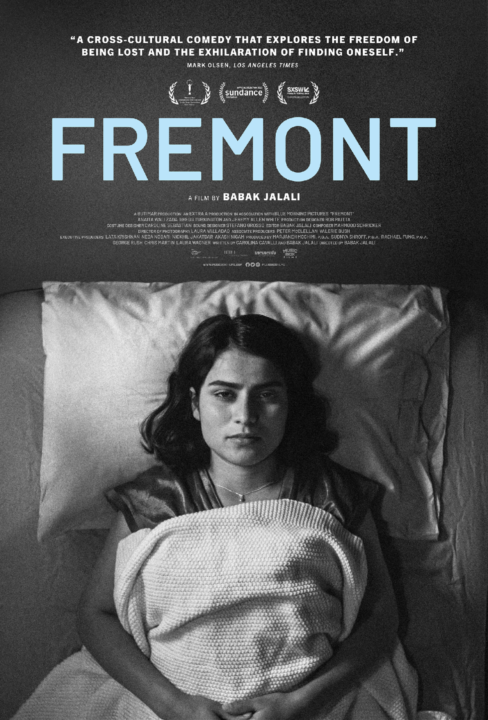Portraying the mundanities of everyday life in a humorous, smartly observed, and profoundly moving way is what makes the film Fremont so magical.
A mostly slice-of-life film told through a series of funny and touching vignettes, the modestly made Fremont follows the life of a young Afghani immigrant in the US. Photographed in fabulous black and white, Fremont draws comparisons to the work of John Cassavetes and personally made me think of Frances Ha. Premiering at this year’s Sundance Film Festival, it was the most endearing and enjoyable film I saw.
Donya (Anaita Wali Zada) is a young Afghani woman living in the quiet town of Fremont, California. She lives alone but among a strongly concentrated Afghani community. She takes the bus into San Francisco where she works a low-thrills job packaging cookies at a fortune cookie factory, passing the time listening to small talk from her quirky friend and the encouragement from her good-hearted Chinese immigrant boss.
A largely quiet presence, Donya listens to the thoughts and opinions of a revolving cast of characters. It’s a wonderful storytelling device, allowing us to see this unique slice of Americana through her eyes.
Donya’s quietness should not be mistaken for passiveness–and certainly, not for weakness. With piercing eyes, she has a fixed, almost steely gaze–something almost challenging. But as the camera captures, there’s an enduring warmness and intelligence that lies underneath. Donya watches the world with both curiosity and caution as if constantly on guard.
To this end, we see that Donya has trouble sleeping and wants to get sleeping pills. Before she can receive the prescription, she must sit through weekly sessions with a psychiatrist (Gregg Turkington). These repeating sessions allow us to learn more about the closed-off Donya. And it’s here where the film makes its reveal: Donya fled from the threat of the Taliban after working as a translator for the US Army.
Instantly, Fremont explodes into a global story, widening out beyond just the sleepy American city where she lives. Immediately, the film’s slow, quiet rhythms of humdrum life stand in stark contrast to what we can imagine was her previous life—a war-torn country filled with constant danger and chaos.
All of the simple, pleasant joys that we then see her live–nightly talks about Indian soap operas with a small restaurant owner, a job promotion to begin writing her company’s fortunes, and the possibility of a budding romance (Jeremy Allen White)–feel even more special and magical.
Directed by Babak Jalali (from a script he wrote with Carolina Cavalli), Fremont is a small, but incredibly heartfelt and enjoyable film. The story’s many vignettes feel like chapters in a personal diary. I found myself either laughing at its droll jokes, touched by the heartfelt moments, or amazed by its profound observations.
Fremont also has a strong visual identity that’s a pleasure to watch. The black-and-white cinematography by Laura Valladao is beautiful, harkening to what made Roma so distinct. Along with directing and co-writing, Babak Jalali edits the film too and lets the story unfold slowly, and gently. Mahmood Schricker’s warm single trumpet jazz score creates a relaxing rhythm to fall completely under its spell.
Of course, the thing that makes the movie work is its star. First-time actress Anaita Wali Zada as Donya is perfectly cast. This makes sense when you learn that she is in fact, a real-life refugee. Her performance is natural, raw, and one of pure observation. Slowly, Donya starts to open up, and the tiniest hint of a smile starts to sneak through. You can feel that a whole world of color and wonder lies waiting ahead.
1h 31m.
This review was originally published on January 24, 2023, when first viewed at Sundance Film Festival 2023.
Ryan Rojas
Ryan is the editorial manager of Cinemacy, which he co-runs with his older sister, Morgan. Ryan is a member of the Hollywood Critics Association. Ryan's favorite films include 2001: A Space Odyssey, The Social Network, and The Master.


